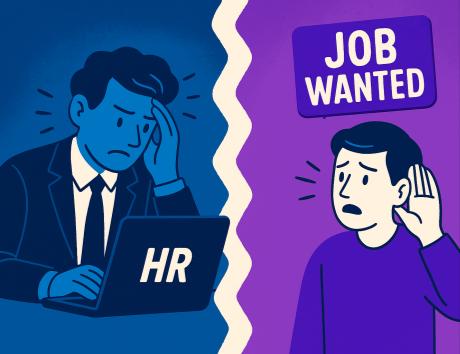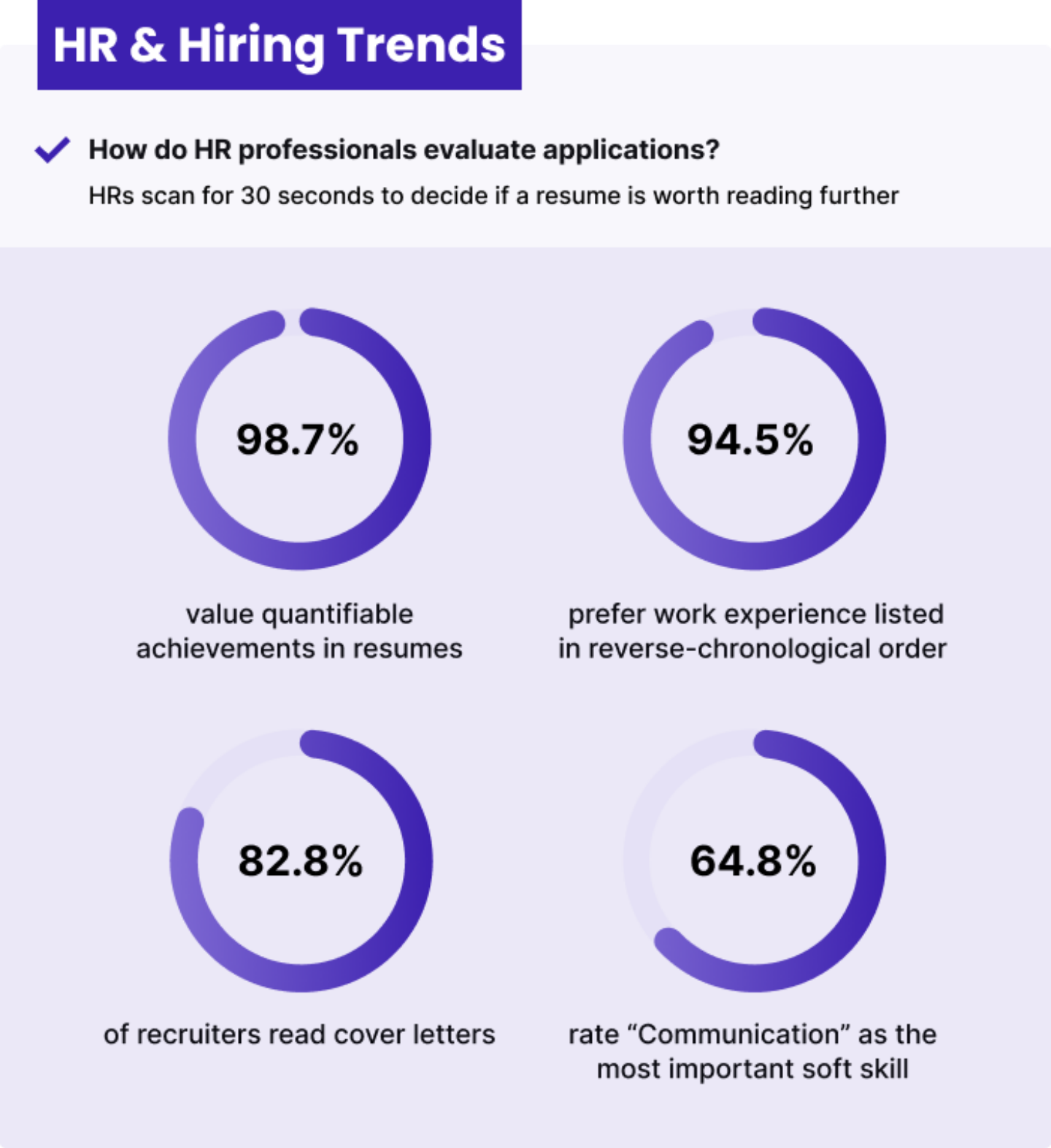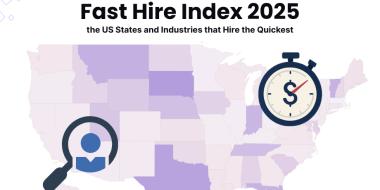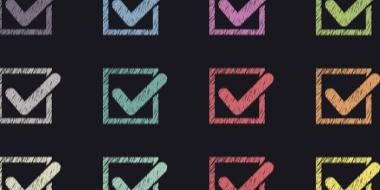2026 Hiring Trends: What 1000+ HR Professionals Really Want in a Candidate
How fast do recruiters really decide? Is AI helping your chances or hurting it? And what actually makes a resume stand out? To understand what truly matters in a job application, Jobseeker surveyed more than a 1000 HR professionals with the goal of uncovering which elements make a candidate stand out and which ones send their resume straight to the discard pile.

This deep dive explores how recruiters evaluate resumes, cover letters, and candidate fit, including how they interact with Applicant Tracking Systems (ATS), what role AI-generated content plays, and which mistakes they find most unforgivable. From formatting quirks to storytelling preferences, and from keyword use to resume file types, this report brings you behind the scenes of how hiring decisions are made today.

First Impressions: Resume
When it comes to resumes, recruiters move fast, really fast. According to the 1013 HR professionals, it takes just 30 seconds for most to decide whether a resume is worth a closer look. So, what are they scanning for in that first glance?
The answer is clear:
- 82.6% go straight to work experience,
- 63.7% focus on key skills,
- 37.7% look for an educational background match,
- 32.5% want to see quantifiable achievements.
Optional sections like hobbies? Only 7.9% look there to assess cultural fit. But if you’ve volunteered, it’s a different story—57.5% say they view volunteer work as relevant professional experience.
HR take: You should ask yourselves, “Does my resume build a narrative that will allow [recruiters] to see my professional experience?”
More resume insights:
- 94.5% prefer work experience listed in reverse-chronological order.
- 37.3% first look at educational background.
- 32.5% first look at quantifiable achievements.
- 98.7% value quantifiable achievements in resumes.
- 53.5% want the resume summary to reflect relevant work experience, and 60.7% expect summaries to highlight skills and achievements.
HR take: "If you don't have the specific skills, use your cover letter to build a bridge between your current and transferable skills to what recruiters are seeking."
Resume Design and Layout
Formatting is your resume's first test when it comes to making an impression. 96.6% of recruiters say formatting influences their decision, and 30.1% say it has a significant impact.
Here's what recruiters want:
- 98.8% value clean, consistent formatting throughout.
- 44% favor a reverse-chronological layout; 21.4% prefer a functional layout, and 20.1% a combination layout.
- 80.1% prefer bullet points; only 6.7% favor paragraphs.
File format matters too:
- 76.8% want resumes submitted as PDFs; only 12% prefer Word files.
- 51% prefer 2-page resumes; 82.1% say 1–2 pages is ideal for resume length, whereas 31.1% prefer a single page.
- 72.2% feel positive or neutral about color use in resumes.
- 59% prefer classic fonts like Times New Roman or Calibri.
- 49.9% accept images if relevant; 46.7% prefer text-only resumes.
Applicant Tracking Systems (ATS)
The majority of resumes don’t get seen by an HR professional unless they pass through an Applicant Tracking System (ATS).
Here’s what the data shows:
- 76.3% of recruiters use ATS, at least occasionally.
- 73% use ATS to filter for experience level.
- 64.9% filter for hard skills.
- 59.2% check for previous job titles.
- 55.2% say relevant keywords are critical to getting through.
- 40% consider formatting a make-or-break factor for ATS readability.
Which criteria HR professionals use to filter candidates in their ATS?

So, what is most important to optimize for ATS according to HR professionals?
- Use clear job titles and dates (69.1%)
- Choose relevant keywords (55.3%)
- Include education details (49%)
- Format it properly (45.7%)
- Include certifications (33.6%)
Hear it from HR: “We don’t have time to troubleshoot weird resume formats,” one recruiter noted.
An Effective Cover Letter
Now that we've gone over the key points of a successful resume, time to dive into cover letters. A resume is not enough by itself; 82.8% of recruiters almost always read cover letters, and 53.3% say they always read them. And there is one thing almost all HR professionals (95.1%) agree on: you need to tailor your cover letter for the position you are applying for.
So, what else are they looking for?
- 58.2% look for relevant work experience.
- 54.1% expect to see clear motivation.
- 51.8% assess personalization.
- 68.6% prefer letters that align with the company’s mission or values.
- 74% prefer the letter includes original content.
- 83.7% value coherent storytelling—especially when explaining motivation, achievements, or career transitions.
Hear it from HR: “A generic letter won’t hurt you—it just won’t help you,” noted one recruiter.
What hurts your chances in a cover letter?

AI-Generated Cover Letters
AI has officially entered the job search chat. And recruiters are catching on. A striking 81.6% have already encountered AI-written cover letters, and only 3.3% say they’re unsure if a letter was AI-generated.
According to the Jobseeker survey, they can spot AI-written cover letters and they judge them.
AI-related recruiter behavior:
- 61.1% detect AI through a lack of personalization.
- 59.8% recognize AI based on style and tone.
- 57.4% note overly generic phrasing.
- 41.3% are tipped off by overly formal or robotic language.
- 43.7% catch inconsistencies in AI-written applications.
Pro tip: AI can help but recruiters expect personalization. “We notice when you don’t,” one said.
And how do they react?
- 54% are less likely to proceed with unedited AI content.
- 34.1% scrutinize generic AI-written applications more closely.
- Only 11.6% treat AI-assisted applications the same as any other.
Hear it from HR: “I don’t mind AI if it’s edited with care. If it reads like ChatGPT with zero effort? Pass.”
Getting Ahead of the Competition
The fundamentals (experience, skills, formatting) are your entry ticket. But what seals the deal? Recruiters say it’s customization. Tailoring your resume and cover letter to the company shows effort, initiative, and attention to detail.
Green Flags: What recruiters love to see
- Tailored messaging and motivation
- Simple, chronological layout
- Coherent examples of quantifiable experience
- Personal touches that show research
- Clear, confident communication
Red flags: What turns them off
- Generic summaries copied across roles
- Dense paragraphs with buzzwords
- AI-written letters with no human editing
- Over-designed, inconsistent formatting
- Irrelevant or filler content
Other ways to stand out:
- 64.8% rate “Communication” as the most important soft skill.
- 57.7% choose “Problem-solving” and 57.1% highlight “Teamwork.”
- 60.7% expect candidates to actively highlight skills in their resume summaries.
Pro tip: Clearly show the recruiters you are interested. “Personalize your application for the company - do your research, see what is going on in the company news, how do they present to the public/media and embed this into what value you can bring,” one HR expert pointed out.
What Happens After That First Look?
If your resume passes the 30-second test, it earns:
- About 11.5 minutes of attention across reading, comparing, and shortlisting.
- 1 hour and 22 minutes of review time for candidates who reach the interview stage.
Beyond that, the full hiring process can span days, weeks, or even months, depending on role and company size.
“We can spot lazy or generic applications right away,” said one respondent.
That means: most of the battle is won (or lost) in minutes. Precision and relevance are essential if you want to get ahead of other candidates.
Final Takeaway: Make Every Section Count
The data confirms what job seekers often suspect: recruiters are fast, design-conscious, and detail-oriented. AI won’t replace effort. Formatting won’t hide weak experience. And hobbies won’t win over a recruiter if the core content falls short.
But the right mix (tailored, genuine messaging + clean presentation + thoughtful structure) still opens doors.
As one recruiter put it, "Clearly define what you are aiming for and tailor every part of your application process toward that goal."
Your resume doesn’t have to be perfect. But it must be purposeful.
Research Background
This report is based on a proprietary online survey conducted in 2025 by Jobseeker with 1,013 HR professionals across 59 countries. All respondents work in human resources and are involved in evaluating job applications.
The survey explored the key factors that influence whether a candidate secures an interview, including resume content, formatting, cover letters, ATS compatibility, AI usage, and common red/green flags. Respondents answered a mix of multiple-choice and open-ended questions, offering both quantitative data and qualitative insights into modern hiring preferences.
Impress potential employers with your resume
Follow step-by-step professional guidance to create a polished resume in minutes.



